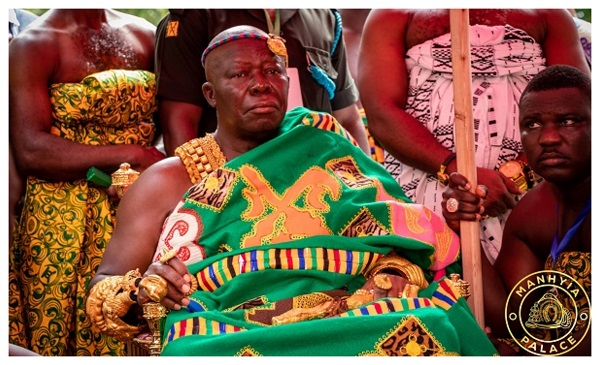Top Online Scams Ghanaians Should Avoid in 2025

As digital adoption grows across Ghana, so do online scams. From fake investment platforms to phishing emails and mobile money fraud, cybercriminals are finding new ways to trick unsuspecting users. In 2025, it’s more important than ever for Ghanaians to stay informed and alert online. Below are the top online scams you should avoid in Ghana this year—and how to protect yourself.
1. Fake Investment & Crypto Trading Platforms
How It Works:
Scammers create websites or social media pages promising high returns on investments in cryptocurrency, forex, or online trading. They often use fake testimonials and impersonate real financial institutions or celebrities.
Red Flags:
-
Unrealistic profit guarantees (e.g., “Make 200% in a week”)
-
Pressure to invest quickly
-
Poorly written websites or apps
-
No verifiable physical address or license
Protect Yourself:
Only invest through licensed platforms regulated by Ghana’s Securities and Exchange Commission (SEC). Verify company registration on Ghana’s Registrar General’s Department site.
2. Mobile Money (MoMo) Fraud
How It Works:
Fraudsters pose as MTN or Vodafone agents, or even GRA officials, claiming you’ve won a prize or sent wrong money. They ask for your PIN or trick you into authorizing a transaction.
Red Flags:
-
Messages from unofficial numbers
-
Claims of “wrong transfer” followed by calls
-
Being asked to dial codes you don’t understand
Protect Yourself:
Never share your MoMo PIN. Call your service provider directly to verify suspicious messages. MTN: 100, Vodafone: 100.
3. Romance Scams / Online Dating Fraud
How It Works:
Scammers create fake profiles on dating apps or social media. They develop an online relationship and then ask for money to deal with a “family emergency,” “visa issue,” or “hospital bill.”
Red Flags:
-
Refusal to meet in person or video call
-
Stories that pull on emotions and lead to money requests
-
Fast declarations of love or affection
Protect Yourself:
Avoid sending money to anyone you haven’t met. Do a reverse image search to check if their photos are stolen.
4. Fake Job Offers & Recruitment Sites
How It Works:
You receive an email, SMS, or see a Facebook ad promising a high-paying job with a popular company—often abroad. They ask for “processing fees,” “medical test fees,” or “visa support” fees upfront.
Red Flags:
-
Vague job descriptions or no interviews
-
Gmail/Yahoo addresses instead of company emails
-
Payment requests before confirmation
Protect Yourself:
Research job listings on official company websites or through trusted agencies. Never pay money to apply for a job.
5. Online Shopping & Delivery Scams
How It Works:
Scammers set up fake online stores or social media pages selling phones, electronics, clothes, or cosmetics at “promo” prices. After payment via MoMo or bank transfer, they vanish.
Red Flags:
-
No physical store or traceable contact
-
Only accepting mobile money with personal names
-
No reviews or presence on reputable e-commerce platforms
Protect Yourself:
Buy only from verified e-commerce sites like Jumia, Kikuu, Tonaton, OLX, or reputable Instagram sellers with proven customer feedback.
6. Phishing Emails & Links
How It Works:
You receive an email or WhatsApp message pretending to be from your bank, GRA, ECG, or a delivery company. It contains a link asking you to log in or provide personal details.
Red Flags:
-
Emails with spelling errors or suspicious URLs
-
Requests for passwords, PINs, or bank info
-
Links that redirect to unofficial websites
Protect Yourself:
Do not click suspicious links. Check the email address carefully. Always visit the official website directly.
7. Loan App Scams
How It Works:
Fraudulent mobile loan apps promise instant loans with no credit check. Once installed, they access your phone contacts and begin harassing you or your family for inflated repayments—even if you never borrowed.
Red Flags:
-
Unrealistically fast approval
-
Apps not found on Google Play Store
-
Demands for personal data beyond reason
Protect Yourself:
Use only loan apps licensed by the Bank of Ghana. Be cautious of apps that require excessive permissions.
Final Tips to Stay Safe Online in Ghana (2025)
Use strong passwords and enable two-factor authentication (2FA)
Don’t trust deals that sound too good to be true
Verify links and sources before clicking
Report fraud to Ghana’s Cybercrime Unit or the Cyber Security Authority (CSA) via www.csa.gov.gh
Conclusion:
As digital tools become part of everyday life, so do online scams. Ghanaians must stay vigilant and informed to avoid losing money or compromising personal data. The best defense is education—so share this guide with your friends and family to help keep everyone safe in 2025.





